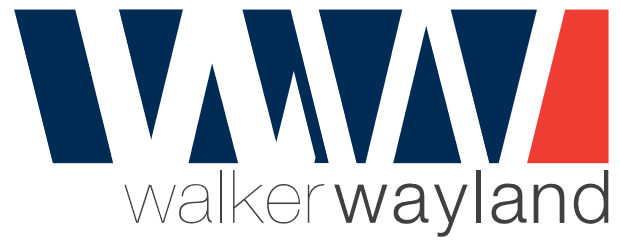- All
- Accounting
- Audit & Assurance
- blog
- Business Affiliates
- Business Partners & CSR
- Consultancy
- Contact Us
- Content
- COVID-19
- Environmental Awareness Series
- Events
- HTML Emails
- Investing
- Miscellaneous
- News
- Seminar
- Services
- SMSF
- Tax
- Tax & Accounting
- Uncategorised
- Uncategorized
- Visa News
- We are
- Wellbeing Series
- You are
Avoid losing valuable franking credits
dVT Group, our fellow members of Walker Wayland Australasia, have considered an opportunity for small businesses to address the potential loss of franking credits…
Walker Wayland NSW running the City2Surf for the Lyceum Group Foundation
Sydney will host the annual City to Surf fun run on 13 August 2017 with the participants raising millions of dollars for a varieties of charities.
Walker Wayland NSW will again be entering a team and have 20 eager participants ready to raise money for our selected charity. This year we are participating – running and walking – in support of The Lyceum Group Foundation, a charity that provides medical equipment to children with disabilities. We are delighted to have the opportunity to support such a worthwhile charity to provide vital support to the children and their families, many of whom are doing it tough.
Apportioning the income of professional sportspersons to their other entities
On 19 July 2017 the Australian Taxation Office (ATO) released Practical Compliance Guideline PCG 2017/D11 (‘the Guideline’).
The Guideline addresses the matter of the extent to which lump sum payments for the provision of a professional sportsperson’s services and the use and exploitation of their ‘public fame’ or ‘image’ under licence can be apportioned. The Guideline sets out a ‘Safe Harbour’ for doing so.
This PCG can be relied upon in circumstances where:
- a professional sportsperson grants an “associated resident entity” (such as a trust) a non-exclusive licence to use and exploit the sportsperson’s ‘public fame’ or ‘image’,
- that resident entity (and not the sportsperson) is contractually entitled to receive the income from the use and exploitation of the professional sportsperson’s ‘public fame’ or ‘image’, and
- the payment is not referable to the use or exploitation of rights which are recognised and specifically protected under Australian law, such as copyright, trademarks or registered design rights.
GST on supplies of digital products and other services to consumers from 1 July 2017
With effect from 1 July 2017, GST applies to supplies of digital products and other services to Australian consumers by foreign entities. Such supplies will be subject to GST in a similar way to equivalent supplies made by Australian entities to domestic consumers. In particular:
- supplies of things other than goods or real property made to a recipient who is an “Australian consumer” (see below) are taken to be connected with Australia. This will generally bring the following into the GST net:
- supplies of digital products such as streaming or downloading of movies, music, apps, games and e-books
- other services such as consultancy and professional services supplied from overseas to an Australian consumer.
- where a supply of anything other than goods or real property supplied to an Australian consumer from offshore (an inbound intangible consumer supply) is made through an “electronic distribution platform”, the operator of the platform instead of the actual supplier is taxed. This represents a significant departure from the general rules that make the actual supplier liable, although there are some exceptions.
Changes to Higher Education Loan Program (HELP) and Trade Support Loan (TSL) repayment obligations
The Australian Government has recently introduced changes relating to Higher Education Loan Program (HELP) and Trade Support Loan (TSL) repayment obligations.
If you live and work overseas and earn worldwide income that exceeds the minimum HELP and TSL repayment thresholds, you are required to make repayments against your loan. The two main changes the Australian Government has introduced require you to do the following:
update your contact details and submit an overseas travel notification if you have an intention to reside, or already reside, overseas for 183 days or more in any 12-month period; and
lodge your worldwide income or a non-lodgment advice.
These changes apply to new and existing HELP and TSL debts.
ASIC increases fees from 1 July 2017
ASIC increases its fees each year based on the Consumer Price Index (CPI) for the previous March quarter. As such, from 1 July 2017…
Draft tax ruling on deductibility of employees’ travel expenses
Further to removing the deductibility of travel expenses in relation to rental properties in the 2017-18 Federal Budget, the Commissioner has issued Draft Tax Ruling TR 2017/D6 which addresses the deductibility of employee travel expenses.
Under the general tax principles, an employee’s travel expenses are deductible for income tax purposes if they are:
- incurred for the purpose(s) of gaining or producing assessable income, and
- not capital, private or domestic in nature.
A variety of travel claims have been examined in TR 2017/D6, outlining situations where employees are, or are not able to claim an income tax deduction for travel expenses.
Cars and tax
From 1 July 2017 the following car threshold amounts apply. Income tax This is the upper limit on the motor vehice cost you use to work…
Our top tax tips for businesses and individuals ahead of the FY17 year-end
Businesses
- Drop in company tax rate: The company tax rate is currently 27.5% for companies with aggregate turover of less than $10M. From 1 July 2017 the 27.5% rate will also apply to companies with aggregate turnover of between $10M and $25M. Therefore tax deductions may be available for such companies at the 30% rate to 30 June 2017 and 27.5% thereafter. Accordingly:
- to the extent you can ensure suppliers invoice you prior to 1 July 2017, the deduction will reduce tax at the rate of 30% in FY2017, thereby providing an additional 2.5% reduction in tax;
- review your trade debtors listing and write off all bad debts where appropriate before 30 June 2017;
- review inventory and assets schedules for obsolete items and items that can be scrapped; and
- fully franked dividends declared and paid before 1 July 2017 will carry franking credits at 30%. Thereafter they would be franked at 27.5%.
- $20K instant asset write-off: Businesses that are small business entities (generally those with aggregated turnover of less than $10m) can claim an immediate deduction for assets acquired prior to 1 July 2017 if the cost of the asset is less than $20,000.
- Prepay expenses: Small business entities can prepay up to 12 months’ worth of expenses and claim the full amount in the current year.
- Payment of superannuation contributions: To claim a tax deduction for employee superannuation contributions in the 2017 financial year, the business needs to ensure that the payments have cleared the business bank account by 30 June 2017.
Changes to foreign resident capital gains withholding payments system
On 9 May 2017 as part of the 2017-2018 Federal Budget, the Government announced two changes to the system whereby a purchaser is required to withhold an amount (currently 10%) of the purchase price from the seller and pay the amount withheld to the ATO as part of the settlement process when selling or buying real property or interests in real property in Australia.
The changes announced are to the threshold and the withholding payment rate, and will apply to any contracts of sale entered into on or after 1 July 2017. However, the current threshold and withholding payment tax rate will apply for any contracts which are entered into prior to 1 July 2017, regardless of whether they settle after that date.

